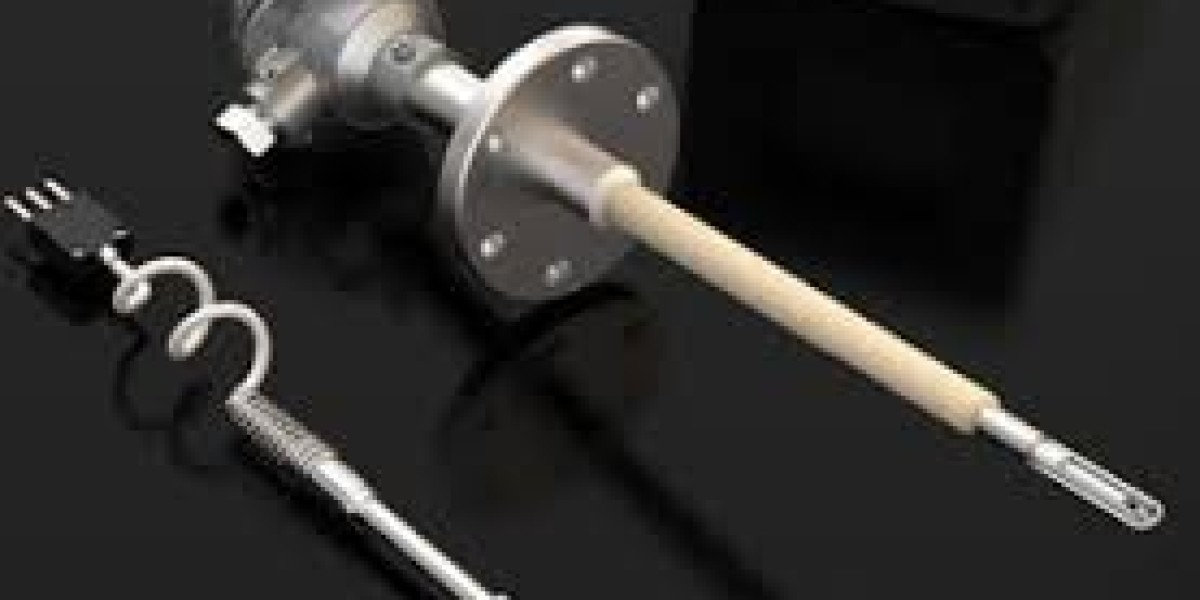A Resistance Temperature Detector (RTD) is a highly accurate and reliable temperature sensor widely used across various industries. RTD sensors work by measuring the change in electrical resistance of a material, usually platinum, as its temperature changes. This capability makes the resistance temperature detector ideal for applications that require precise temperature measurements, such as in industrial processes, HVAC systems, and scientific research. Let’s explore how these sensors work, the types available, and their advantages.
How Do RTD Sensors Work?
The working principle of an RTD is based on the relationship between temperature and resistance. As the temperature of the material (such as platinum) increases, so does its electrical resistance. The resistance temperature detector uses this change in resistance to determine the temperature. The RTD sensor is connected to a circuit that measures the resistance and converts it into a corresponding temperature reading.
This method ensures accurate and stable readings over a wide range of temperatures, making RTDs one of the most reliable temperature measurement devices available. For example, a platinum RTD (often called Pt100 or Pt1000) provides consistent results even at extreme temperatures.
Types of RTD Sensors
RTD sensors come in several variations depending on the material used and the structure of the sensor. The most common types include:
- Platinum RTDs: The most widely used type of RTD, known for its accuracy and stability. Platinum RTDs are commonly used in industrial and scientific applications.
- Nickel RTDs: Less expensive than platinum but with a narrower temperature range and less stability. Nickel RTDs are often used in lower-cost applications.
- Copper RTDs: Used for specific applications where lower resistance and moderate temperature ranges are needed. These are generally used in electrical equipment.
- Thin-film RTDs: These are compact sensors where a thin layer of platinum is deposited on a ceramic base. They are used when space is a concern, such as in small devices.
Advantages of RTD Sensors
RTD sensors, particularly the platinum resistance temperature detector, offer several advantages that make them preferable in various industries:
- High Accuracy: RTDs provide precise temperature measurements, which is crucial for processes requiring tight temperature control.
- Excellent Stability: Over time, RTDs maintain their accuracy, making them ideal for long-term use in continuous processes.
- Wide Temperature Range: RTDs can measure temperatures from -200°C to 850°C, making them versatile for different applications.
- Repeatability: RTD sensors provide consistent readings over time, which is essential for monitoring critical systems and ensuring process reliability.
- Linear Response: RTDs offer a more linear response to temperature changes compared to thermocouples, simplifying the calibration process.
Applications of RTD Sensors
RTD sensors are used in various industries due to their accuracy and stability:
- Industrial Processes: In manufacturing and chemical processing, RTDs monitor and control temperatures in reactors, boilers, and heat exchangers.
- HVAC Systems: RTDs help control heating and cooling systems, ensuring energy efficiency and comfort.
- Pharmaceutical Industry: In drug manufacturing, RTD sensors monitor the temperatures of sensitive processes, ensuring product quality and safety.
- Aerospace and Automotive: RTDs are used to measure engine temperatures and ensure safety and performance.
- Scientific Research: RTDs provide highly accurate temperature readings needed in laboratories and experimental setups.
Conclusion
The Resistance Temperature Detector (RTD) sensor is a highly reliable and precise device used in a wide range of industries. With its ability to deliver accurate and stable temperature readings over time, the RTD sensor, particularly the platinum type, stands out as a preferred solution for critical temperature measurement applications.
Naijamatta is a social networking site,
download Naijamatta from Google play store or visit www.naijamatta.com to register. You can post, comment, do voice and video call, join and open group, go live etc. Join Naijamatta family, the Green app.
Click To Download


